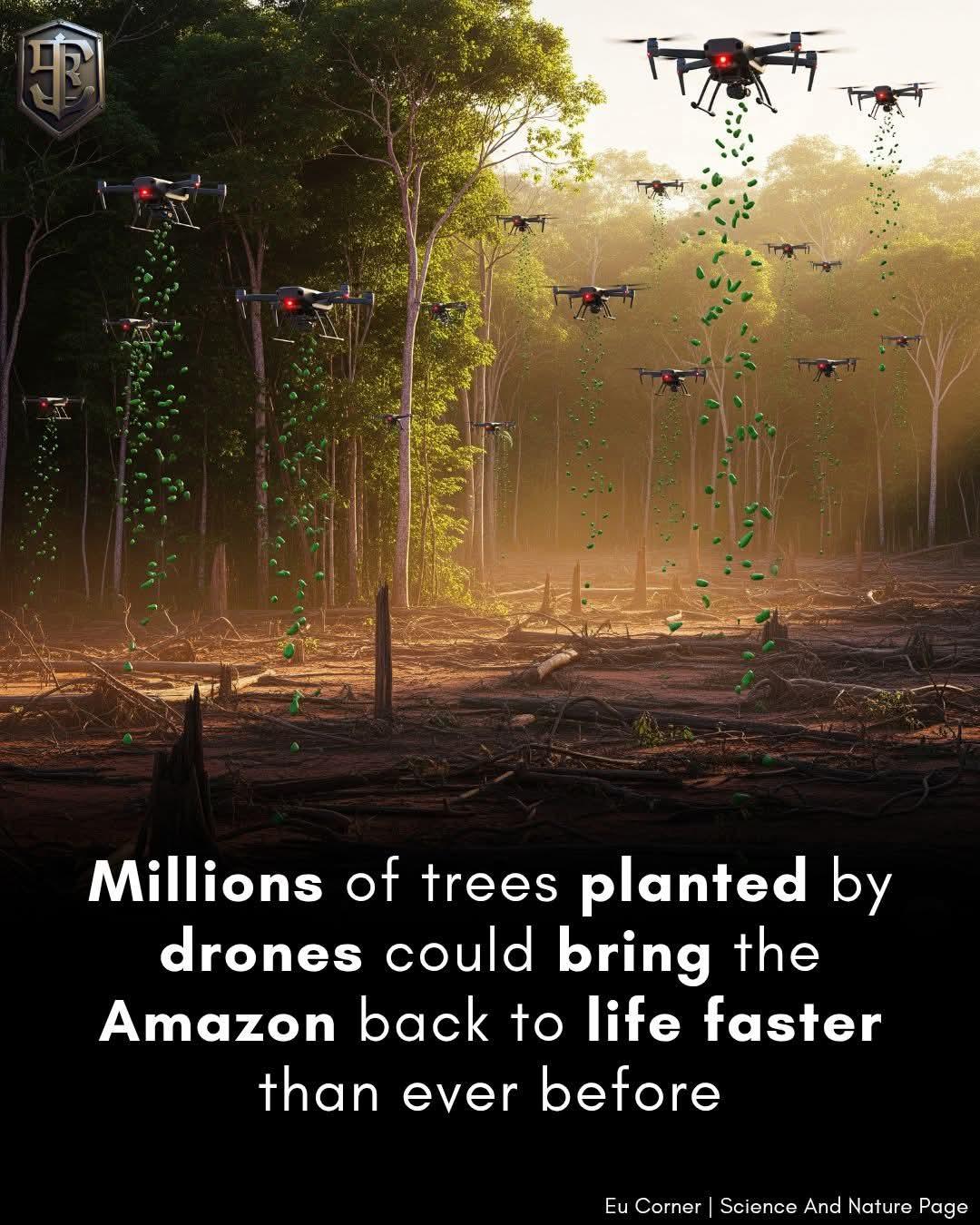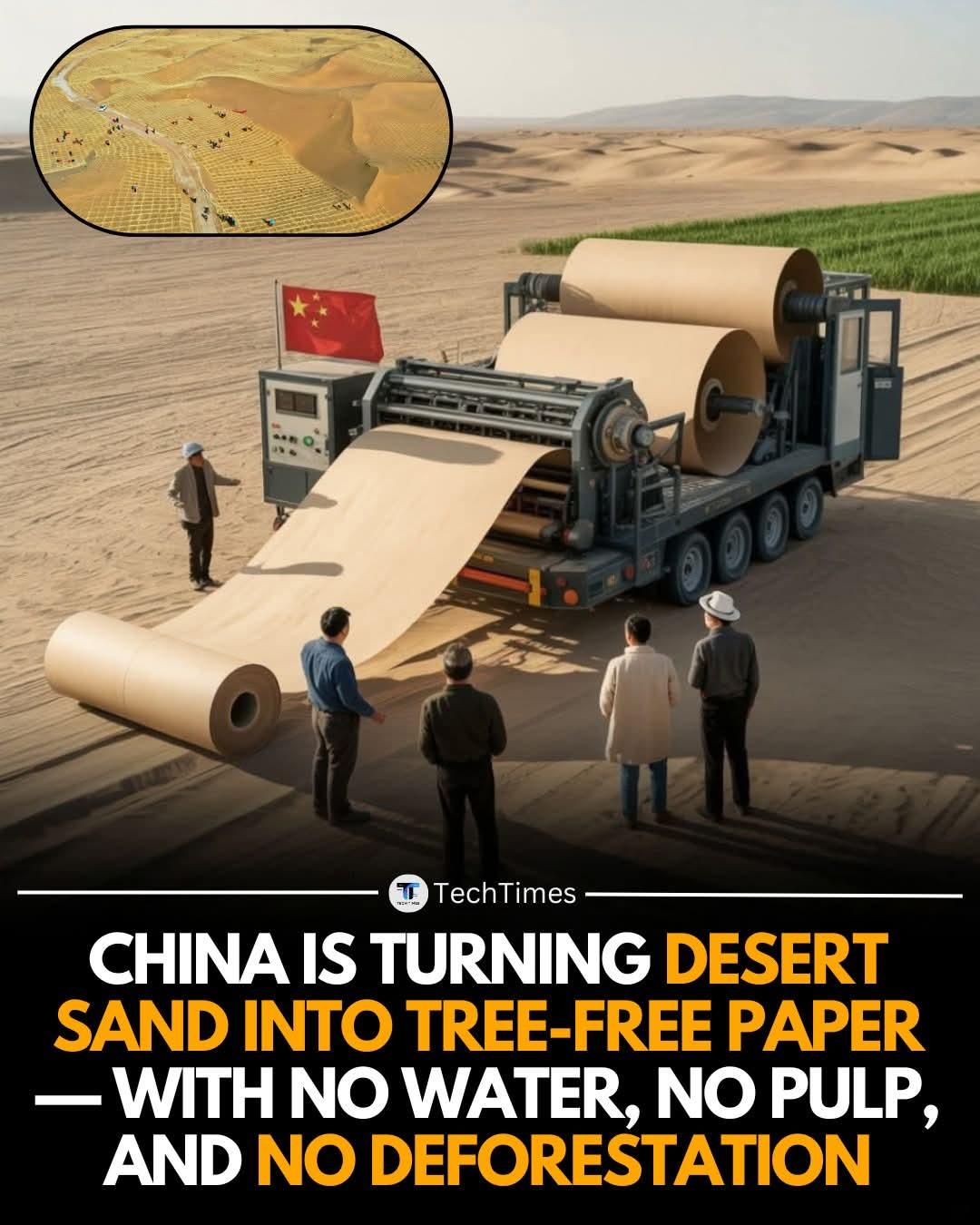Brazil pioneers reforestation drone swarm that plants 100,000 trees per day
Brazilian environmentalists and engineers have launched a drone swarm system capable of planting over 100,000 trees daily in deforested areas, accelerating efforts to restore the Amazon rainforest. The drones autonomously map degraded land, select optimal planting spots, and disperse seed pods embedded in nutrient-rich capsules.
Each drone operates with GPS precision and AI-powered terrain analysis, adjusting flight paths to avoid obstacles and maximize coverage. Seed pods are designed to germinate quickly and protect young plants from pests and drought.
This approach vastly outpaces manual planting methods, which are labor-intensive and slow, enabling large-scale reforestation in remote or dangerous areas. The drones can also monitor newly planted zones, collecting data on growth rates and environmental conditions to guide future efforts.
Partnerships with local communities ensure sustainable management and biodiversity preservation, integrating drone technology with traditional conservation knowledge. The project aims to restore millions of hectares over the next decade, contributing to global climate change mitigation.
Brazil’s drone swarm system is seen as a model for other countries facing deforestation, offering a scalable and cost-effective solution to one of the planet’s most urgent ecological challenges.
Brazilian environmentalists and engineers have launched a drone swarm system capable of planting over 100,000 trees daily in deforested areas, accelerating efforts to restore the Amazon rainforest. The drones autonomously map degraded land, select optimal planting spots, and disperse seed pods embedded in nutrient-rich capsules.
Each drone operates with GPS precision and AI-powered terrain analysis, adjusting flight paths to avoid obstacles and maximize coverage. Seed pods are designed to germinate quickly and protect young plants from pests and drought.
This approach vastly outpaces manual planting methods, which are labor-intensive and slow, enabling large-scale reforestation in remote or dangerous areas. The drones can also monitor newly planted zones, collecting data on growth rates and environmental conditions to guide future efforts.
Partnerships with local communities ensure sustainable management and biodiversity preservation, integrating drone technology with traditional conservation knowledge. The project aims to restore millions of hectares over the next decade, contributing to global climate change mitigation.
Brazil’s drone swarm system is seen as a model for other countries facing deforestation, offering a scalable and cost-effective solution to one of the planet’s most urgent ecological challenges.
Brazil pioneers reforestation drone swarm that plants 100,000 trees per day
Brazilian environmentalists and engineers have launched a drone swarm system capable of planting over 100,000 trees daily in deforested areas, accelerating efforts to restore the Amazon rainforest. The drones autonomously map degraded land, select optimal planting spots, and disperse seed pods embedded in nutrient-rich capsules.
Each drone operates with GPS precision and AI-powered terrain analysis, adjusting flight paths to avoid obstacles and maximize coverage. Seed pods are designed to germinate quickly and protect young plants from pests and drought.
This approach vastly outpaces manual planting methods, which are labor-intensive and slow, enabling large-scale reforestation in remote or dangerous areas. The drones can also monitor newly planted zones, collecting data on growth rates and environmental conditions to guide future efforts.
Partnerships with local communities ensure sustainable management and biodiversity preservation, integrating drone technology with traditional conservation knowledge. The project aims to restore millions of hectares over the next decade, contributing to global climate change mitigation.
Brazil’s drone swarm system is seen as a model for other countries facing deforestation, offering a scalable and cost-effective solution to one of the planet’s most urgent ecological challenges.
0 Kommentare
0 Geteilt
869 Ansichten





